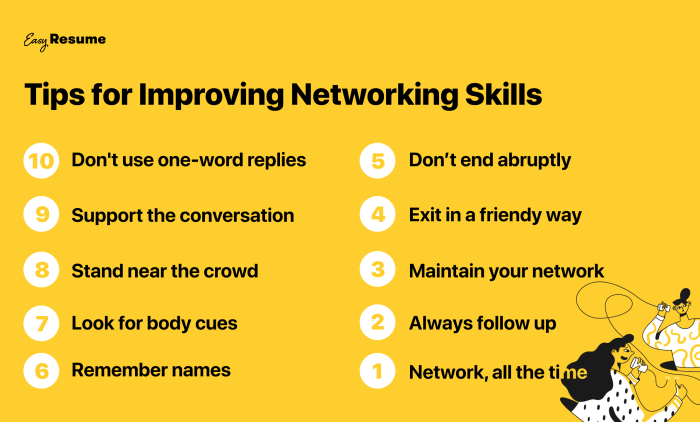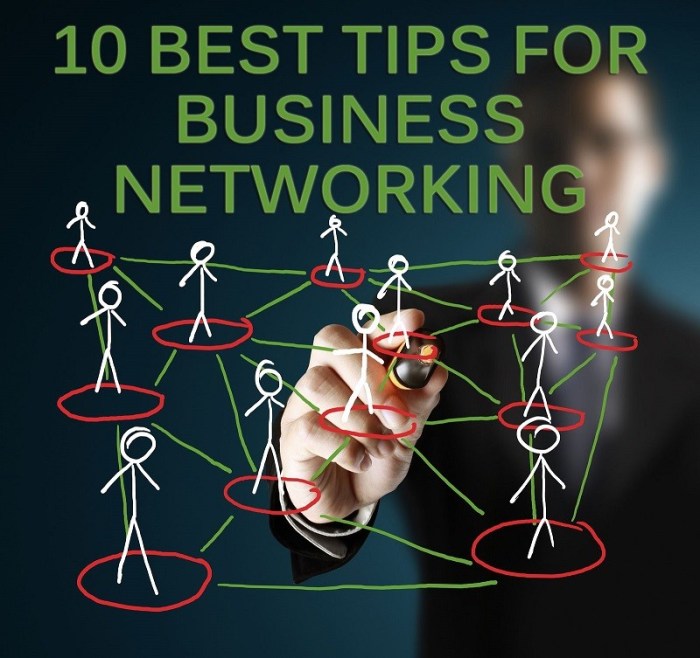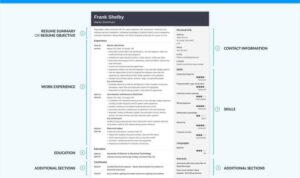Networking Tips for Professionals: Building Strong Connections and Growing Your Career sets the stage for a journey into the world of professional networking, where connections are key and success is just a handshake away. From expanding your network to mastering social media, get ready to level up your networking game.
Whether you’re a seasoned pro or just starting out, these tips will help you navigate the fast-paced world of networking with finesse and style.
Importance of Networking for Professionals: Networking Tips For Professionals
Networking is crucial for professional growth as it allows individuals to build relationships, gain valuable insights, and access new opportunities that can further their careers. By connecting with others in their industry or related fields, professionals can expand their knowledge, receive mentorship, and even discover potential job openings.
Examples of How Networking Has Helped Professionals
- Securing a new job through a referral from a former colleague
- Gaining valuable advice from industry leaders at networking events
- Collaborating on projects with professionals met through networking
Benefits of Having a Strong Professional Network, Networking Tips for Professionals
- Access to job opportunities that may not be publicly advertised
- Receiving guidance and mentorship from experienced professionals
- Building credibility and a positive reputation within the industry
- Expanding knowledge through diverse perspectives and insights
Building Your Professional Network
Building a strong professional network is essential for career growth and opportunities. By expanding your network, you increase the chances of connecting with like-minded professionals and potential employers. Here are some tips to help you build and maintain a successful professional network:
Expanding Your Professional Network
- Attend networking events: Make an effort to attend industry conferences, seminars, and networking events to meet new people in your field.
- Join professional organizations: Become a member of industry-specific groups or organizations to connect with professionals who share your interests.
- Utilize social media: Leverage platforms like LinkedIn to connect with professionals in your industry and stay updated on industry news and trends.
- Offer to help others: Building relationships is a two-way street. Be willing to offer assistance and support to your contacts when needed.
Best Practices for Networking Events and Conferences
- Come prepared: Have your elevator pitch ready and bring plenty of business cards to exchange with new contacts.
- Listen actively: When engaging in conversations, listen attentively and show genuine interest in what others have to say.
- Follow up: After the event, make sure to follow up with the people you met to solidify the connection and continue building the relationship.
Importance of Maintaining Relationships with Contacts
- Stay in touch: Regularly check in with your contacts through emails, phone calls, or meetings to nurture the relationship.
- Offer value: Be proactive in offering resources, information, or assistance to your contacts to show that you value the relationship.
- Seek feedback: Ask for feedback from your contacts on how you can improve professionally and continue to grow in your career.
Utilizing Social Media for Networking

With the rise of social media, professionals have a powerful tool at their disposal to expand their network and connect with potential opportunities.
Leveraging LinkedIn for Networking
- Optimize your LinkedIn profile: Ensure your profile is complete, highlighting your skills, experience, and achievements.
- Connect with professionals in your industry: Reach out to individuals who can provide valuable insights or opportunities.
- Engage with content: Like, comment, and share posts to stay active and visible within your network.
- Join relevant groups: Participate in discussions and share your expertise to establish credibility.
The Dos and Don’ts of Social Media Networking
- Do: Be authentic and professional in your interactions.
- Do: Share valuable content and insights to showcase your expertise.
- Do: Personalize your messages when reaching out to new connections.
- Don’t: Spam your network with irrelevant or promotional content.
- Don’t: Neglect to maintain your profile and engage regularly with your connections.
Networking Etiquette

Networking etiquette is crucial for professionals looking to build lasting connections and make a positive impression in the business world. Mastering the art of networking can open doors to new opportunities and help advance your career. Here are some key tips to keep in mind:
Making a Memorable First Impression
When networking, making a memorable first impression is essential. Here are some tips to help you stand out:
- Craft an engaging elevator pitch that highlights your skills and accomplishments.
- Dress professionally and appropriately for the event or meeting.
- Maintain eye contact and offer a firm handshake when meeting someone new.
- Show genuine interest in the other person by asking thoughtful questions and actively listening to their responses.
The Importance of Listening
Listening is a critical component of effective networking. By actively listening to others during networking conversations, you can learn valuable information, build trust, and form meaningful connections. Here’s how to improve your listening skills:
- Focus on the speaker and avoid distractions.
- Show empathy and understanding by nodding and providing verbal cues.
- Avoid interrupting and allow the other person to finish their thoughts before responding.
- Ask follow-up questions to demonstrate your interest and engagement.
Following Up After Networking Events
Following up with contacts after networking events is key to maintaining relationships and solidifying connections. Here are some tips for effective follow-up:
- Send a personalized thank-you email or message expressing your appreciation for the conversation.
- Reference a specific detail or topic discussed during the networking event to show that you were actively engaged.
- Schedule a follow-up meeting or call to continue the conversation and explore potential opportunities for collaboration.
- Stay in touch periodically to nurture the relationship and keep the lines of communication open.







